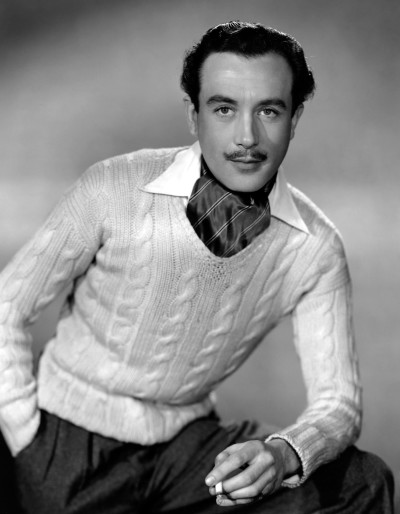Dennis Price (Dennistoun Franklyn John Rose-Price)

Price was born in Twyford in Berkshire, the son of Brigadier-General Thomas Rose Caradoc Price CMG DSO and his wife Dorothy, née Verey, daughter of Sir Henry Verey, Official Referee of the Supreme Court of Judicature. He attended Copthorne Prep School, Radley College and Worcester College, Oxford. He studied acting at the Embassy Theatre School of Acting. Price made his first appearance on stage at the Croydon Repertory Theatre in June 1937, followed by a London debut at the Queen’s Theatre on 6 September 1937 in Richard II. He served in the Royal Artillery from March 1940 to June 1942 during World War II but quickly returned to acting after discharge, appearing with Noël Coward in This Happy Breed and Present Laughter and later as Charles Condomine in Blithe Spirit, which he later named in Who’s Who in the Theatre as one of his two favourite parts along with the title role in André Obey’s Noah. His first film role was in A Canterbury Tale (1944). According to Brian MacFarlane, Price was “mercilessly used by Gainsborough [Pictures] in one unsuitable role after another” in this period. The high point of his film career was as the suave serial murderer Louis Mazzini in the Ealing Comedy Kind Hearts and Coronets (1949). In 1948 British exhibitors voted Price the tenth most popular British actor at the box office. Dennis Price was a guest Judge on a BBC radio broadcast of the Piddingtons show in 1949. His role was to represent the eyes of listeners as the Piddingtons performed their telepathy act in the Piccadilly studios, and in the Tower of London. He was ensuring that no cheating was going on and overseeing the telepathy tests as a witness. In the 1950s, Price appeared in London and New York in new plays and revivals of classics. It has been suggested that he was the first name actor on television to play a “more or less overtly gay role” in Crime on Our Hands (1954). In 1957 he made his debut in South Africa in lead roles in Separate Tables.
As a broadcaster, Price was the original “No. 1” in charge of the crew of HMS Troutbridge in the first series of the long-running radio comedy series The Navy Lark in 1959, but was unable to continue the role in the second series because of other work commitments, he was replaced by Stephen Murray. His film appearances from this period included Tunes of Glory (1960) and The Amorous Prawn (aka, The Playgirl and the War Minister 1962). In the BBC television series, The World of Wooster (1965–67), Price’s performance as Jeeves, was described by The Times as “an outstanding success” Working with Ian Carmichael as Bertie Wooster, this now almost completely lost series, was based on the novels and short stories of P.G. Wodehouse. He appeared in Series 6, Episode 9 of The Avengers. In 1967, Price was declared bankrupt; he attributed his financial distress to “extravagant living and most inadequate gambling”. He then moved to the tax haven island of Sark, which coincided with an escalation in his alcoholism. Towards the end of his life, Price appeared in a series of horror films such as Twins of Evil (1971), Horror Hospital (1973) and Theatre of Blood (1973), including five movies directed by Jesús Franco. One of his last film appearances was a star-studded version of Alice in Wonderland (1972) with Ralph Richardson, Robert Helpmann, Peter Sellers and Dudley Moore, among others. Price died of heart failure complicated by a hip fracture in Guernsey at age 58 in 1973. He is buried on Sark. In the book British Film Character Actors (1982), Terence Pettigrew wrote that Price’s most successful screen characterisations were “refined, self-centred, caddish and contemptuous of a world inhabited by inferiors. Everything about him was deceptive. He could be penniless and still manage to look as if he owned the bank. But behind all that grand talk and lordly ways, there skulked, in his characters, the most ordinary of shabby, grasping souls.”
Price was married to the actress Joan Schofield from 1939 to 1950. They had two daughters. Price was homosexual and the marriage was an attempt to lead a ‘conventional’ life, since homosexual activity was a criminal offence in England and Wales until 1967. In April 1954 he tried to commit suicide by gas in a London guest house. Public sympathy led to a resurgence in his popularity and the offer of film roles. However, his private life, which included heavy gambling and an increasing reliance upon alcohol, began to affect his health, looks and career. Price’s private anguish may have led to his role in the film Victim (1961), controversial at the time, which portrayed the dilemma faced by a group of gay men who were being blackmailed for their sexuality.
Born
- June, 23, 1915
- United Kingdom
- Twyford, Berkshire, England
Died
- October, 06, 1973
- Guernsey, Channel Islands
Cause of Death
- congestive heart failure
Cemetery
- St Peters Anglican Churchyard
- La Seigneurie (Sark), Guernsey



